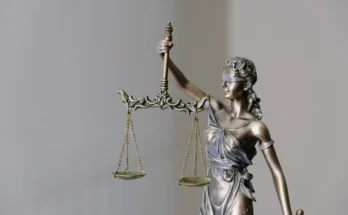Introduction:
Insurance Blackjack In the world of casino games, few evoke as much excitement, skill, and strategic thinking as the classic card game, Blackjack. A staple in both traditional brick-and-mortar casinos and online gaming platforms, Blackjack is renowned for its simplicity and potential for strategic gameplay. One intriguing aspect that adds an extra layer of complexity to the game is the concept of insurance. In this article, we will explore the nuances of insurance in Blackjack, understand how it works, and discuss whether it’s a prudent move for players seeking to enhance their gameplay.
The Basics of Blackjack:

Before delving into the realm of insurance, let’s briefly revisit the fundamentals of Blackjack. Also known as 21, the game revolves around the objective of obtaining a hand value as close to 21 as possible without exceeding it. Each player, along with the dealer, is dealt cards, and the values are tallied based on the numerical values assigned to each card. Face cards are worth 10, aces can be worth 1 or 11, and the remaining cards retain their face value.
The primary goal is to beat the dealer’s hand without going over 21. Players have several strategic options, including hitting (taking additional cards), standing (keeping the current hand), doubling down (doubling the initial bet with the requirement to draw only one more card), and splitting (dividing a pair into two separate hands).
Understanding Insurance in Blackjack:

Insurance in Blackjack is a side bet option offered when the dealer’s face-up card is an ace. It is essentially a wager on whether the dealer has a natural blackjack (a two-card hand totaling 21). The insurance bet is typically half the original wager, and if the dealer indeed has a natural blackjack, the insurance bet pays out at 2:1, providing some compensation for the potential loss of the original bet.
Players are given the choice to take insurance before any additional cards are dealt, and the decision to do so depends on the player’s assessment of the likelihood that the dealer has a natural blackjack.
When to Consider Taking Insurance:

The decision to take insurance in Blackjack is largely influenced by the player’s understanding of the game, the specific cards in play, and a basic grasp of probability. Here are some scenarios in which players might consider taking insurance:
1. Dealer’s Ace Upcard:
- The primary condition for the availability of insurance is the dealer’s face-up card being an ace. When this happens, players must assess the risk of the dealer having a natural blackjack. Knowing the remaining deck composition and the likelihood of a 10-value card being the dealer’s facedown card can influence this decision.
2. Card Counting Strategies:

- Advanced players who employ card counting strategies may find insurance more appealing in specific situations. If the deck is rich in 10-value cards, the probability of the dealer having a natural blackjack increases, making insurance a potentially sensible choice.
3. High-Stakes Scenarios:
- In high-stakes games where the potential loss is significant, some players opt for insurance as a form of risk mitigation. However, this decision is subjective and depends on the player’s risk tolerance and overall strategy.
The Risks and Criticisms of Insurance:

While insurance in Blackjack might seem like a prudent option in certain situations, it is not without its criticisms and risks. Here are some considerations that players should keep in mind:
1. House Edge:
- The insurance bet comes with a substantial house edge, making it statistically disadvantageous for players in the long run. The 2:1 payout for a successful insurance bet does not offset the higher likelihood of losing the original bet.
2. Card Counting Complexity:
- While card counting can influence the decision to take insurance, it adds a layer of complexity to the game that may be challenging for casual players. Card counting requires a deep understanding of probability and consistent practice.
3. Inconsistency in Dealer’s Hole Card:
- The fundamental issue with insurance is that players have no knowledge of the dealer’s facedown card. Even if the player correctly predicts that the dealer has a natural blackjack, the insurance bet doesn’t account for the potential variation in the dealer’s hole card.
Expert Strategies and Alternatives:

Experienced Blackjack players often employ strategies that go beyond the basic decisions of hitting or standing. When it comes to insurance, many experts advise against taking this bet, considering the inherent house edge.
In addition to basic strategy, players may explore advanced techniques like card counting, which can provide a more accurate assessment of the deck’s composition and influence decisions related to insurance.
Conclusion:
Insurance in Blackjack adds an intriguing layer of decision-making to an already strategic game.
Ultimately, the decision to take insurance in Blackjack requires a delicate balance between risk and reward. Novice players may find it more prudent to focus on mastering basic strategy and understanding the nuances of the game before delving into the complexities of insurance. As with any aspect of casino





2 Comments on “Insurance in Blackjack:”